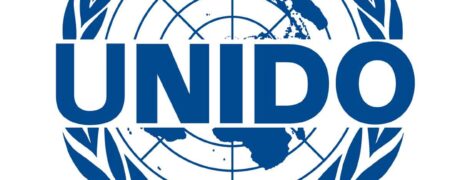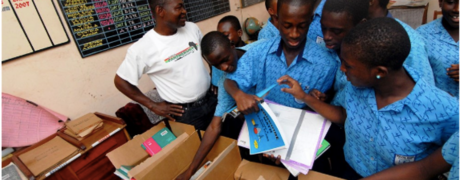- ABOUT US
- RESEARCH
- EDUCATION
- The Graduate School
- PhD Programme
- MSc Programmes
- Capacity Development
- News
- Design and Evaluation of Public Policies (DEPP)
- Design and Evaluation of Innovation Policies (DEIP)
- Evidence-Based Policy Research Methods (EPRM)
- Migration Management Diploma Programme (MMDP)
- Moving the Migration Policy Agenda Forward (MMPAF)
- Online Courses
- Short Courses (Masters)
- Tailor-made programmes
- UNU-MERIT, ITU Academy Training Centre
- Alumni
- Academic Funding
- NEWS
- EVENTS
- PUBLICATIONS
- LIBRARY
News
Maastricht academics react to the 2019 Nobel Prize in Economics
16 October 2019
"I think that the award is a well-deserved recognition for the field of development economics. I was not surprised that these three scholars were awarded the prize: they really changed the way we now think about evaluating the effectiveness of development (policy) interventions." Prof. Eleonora Nill...
Continue Reading →The surprising decline of entrepreneurship & innovation in the West
09 October 2019
The idea that we are living in an entrepreneurial age, experiencing rapid disruptive technological innovation on a scale amounting to a new “industrial revolution” is a pervasive modern myth. Scholars have written academic papers extolling the coming of the “entrepreneurial economy”. Policymakers an...
Continue Reading →Navigating the future of industrial work: International conference co-hosted with UNIDO
07 October 2019
"For two centuries or more new technology has impacted upon employment in manufacturing and other sectors. Technological developments have led most notably to the loss of jobs that required physical capabilities. In the past, however, these new technologies have ultimately created more jobs than hav...
Continue Reading →Would the Mahatma ever approve? On nudging vs. lynching for toilets in India
02 October 2019
Today is the 150th anniversary of the birth of Mahatma Gandhi — and the day Prime Minister Modi had planned to make India “open defecation free”. Over the last five years millions of toilets have been built across the country and its citizens have been “nudged” to use t...
Continue Reading →Jargon hurts the poor: Guest post from the Asian Development Blog
01 October 2019
The excessive use of technical language in international development can keep vital information away from the people who need it the most. Gender-empowering multi-sectoral capacity building facilitates knowledge sharing and engages stakeholders in inclusive sustainability. If you understood that sen...
Continue Reading →War from women’s perspective: My grandmothers’ mygration stories
30 September 2019
The male perspective dominates in times of conflict – think of the generals, the diplomats, the doctors. But what about the women? What is a gendered perspective of war and what value can it add? Female narratives in conflict scenarios have long been neglected, overlooked or forgotten. Recently, how...
Continue Reading →‘My recommendations prompted the region to change’ — Dr. Camilo Carrillo Purin
24 September 2019
The Peruvian in-service programme is a nationwide intervention intended to improve teachers’ ability to perform, and its final objective is to increase student achievement. The programme, delivered since 2008, includes a three-year systematic process of monthly meetings with a supervisor (coach), wh...
Continue Reading →New technology isn’t the cause of inequality – it’s the solution
20 September 2019
Technology has been blamed for a lot recently. Automation and artificial intelligence have supposedly led to substantial job losses, reduced bargaining power for workers and increased discrimination. It is even blamed for growing income and wealth inequality and, as a result, the presidency of Donal...
Continue Reading →‘The team spirit is amazing’ — MPP Cohort 2019-2020
18 September 2019
“It's the first time I've felt 'at home' so quickly in a new environment. Every day at UNU-MERIT is a pleasure. The tutorial sessions are alive, dynamic and very interesting! You can tell that every student is happy to be here and entirely committed.” ...
Continue Reading →What does the future hold for our universities? From talent engines to tech literacy
16 September 2019
Universities are increasingly entrepreneurial, working with partners across borders while navigating ever-more-complex international, national and regional policies. In an ideal world, universities would lead the “ecosystem of knowledge” in which researchers, business leaders and policymakers come t...
Continue Reading →Entering the borderlands: Why preparation pays off when it comes to foreign fieldwork
10 September 2019
"Clearly, policy designs can look great on paper but their ultimate success is shaped by many factors. Unlike in Western Uganda, the government does not own the land in the West Nile region. The land belongs to local communities. As a result, the government relies on the willingness of host communit...
Continue Reading →How one short course helped me focus my research & win TWO scholarships
30 August 2019
This series tracks news and views from our ‘Evidence-Based Policy Research Methods’ (EPRM) course. Many participants work at the highest of levels, both nationally and internationally, including for other parts of the UN system. They come to Maastricht for this unique blended learning programme, cov...
Continue Reading →Singularity: how governments can halt the rise of unfriendly, unstoppable super-AI
28 August 2019
The invention of an artificial super-intelligence has been a central theme in science fiction since at least the 19th century. From E.M. Forster’s short story The Machine Stops (1909) to the recent HBO television series Westworld, writers have tended to portray this possibility as an unmitigated dis...
Continue Reading →Ghana needs more efficient spending to fix gaps in education
21 August 2019
The Millennium Development Goals were announced to the world in the year 2000. They marked a significant milestone in instituting a goal-based approach towards development. In terms of policies, they have arguably been the most successful in driving the world’s agenda towards global development. But...
Continue Reading →Award, share, verify: Why ‘edubadges’ are the future of certification in online education
13 August 2019
I’m involved in an exciting pilot project on ‘Open Educational Badging’ – and I must admit that it’s scary because I barely understand ICT, especially coding. Still, the participants in the ‘Evidence-Based Research Methods’ (EPRM) programme that I direct will be awarded online badges that can be lin...
Continue Reading →Smart robots are inevitable, the concentration of wealth is not
02 August 2019
Artificial intelligence and machine learning are emerging technologies that many people are afraid of, including so-called ‘experts’ and policymakers. Perceived threats include the loss of millions of jobs, leading to mass unemployment and spiralling social and economic problems. One popular study b...
Continue Reading →A tale of two (hot) cities: From Maastricht to Bruges
31 July 2019
This month I travelled from Maastricht to Bruges on the day that happened to be the hottest day ever recorded in both Dutch and Belgian meteorological history. As weather experts were explaining how a wave of hot air had moved north from the Sahara across continental Europe, it became clear to most ...
Continue Reading →Breaking free of the Great Recession: Maastricht researchers join Horizon 2020 project
29 July 2019
The Great Recession of the late 2000s hit Europe hard, with the perfect storm of an economic downturn and a productivity slowdown. What’s more, it compounded years of already anaemic growth. Since then, EU states and agencies have worked hard to contain these problems, but a decade later there are s...
Continue Reading →AI’s current hype & hysteria could set the technology back by decades
25 July 2019
Most discussions about artificial intelligence (AI) are characterised by hyperbole and hysteria. Though some of the world’s most prominent and successful thinkers regularly forecast that AI will either solve all our problems or destroy us or our society, and the press frequently report on how AI wil...
Continue Reading →Learn, combine, track: The hidden history of innovation indicators
24 July 2019
"Breakthrough innovations often emerge from a combination of different types of knowledge from different areas… The next step is to track these innovations via relevant data sources and comparative indicators.”...
Continue Reading →© 2024 UNU-MERIT | Maastricht University























